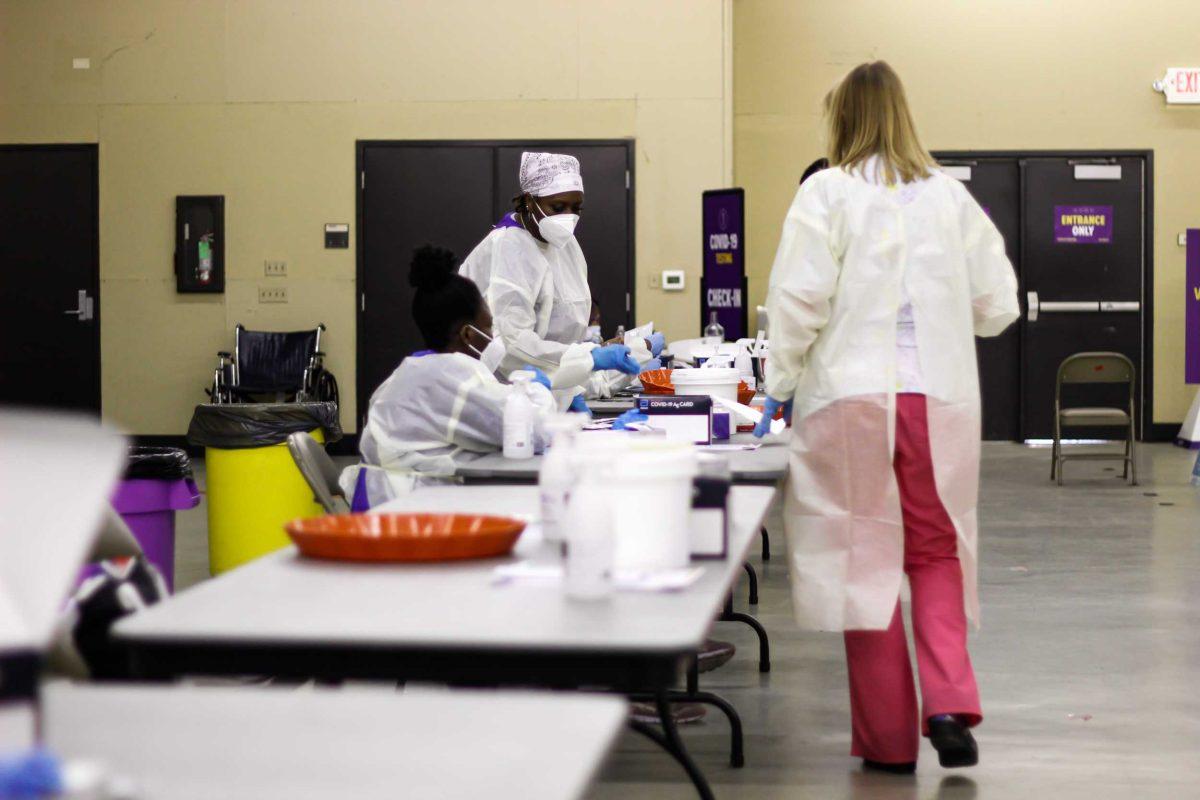LSU engineering professor Lu Peng and a group of graduate and undergraduate students developed GeauxTrace, a mobile contact tracing app that notifies users of close contact with somebody who reports contracting COVID-19.
The project was funded as part of an $888,642 grant from the National Institutes of Health and began in January. The grant also funded four other virus-related projects.
The user is not required to submit any personal information. The app only records a limited amount of information in order to protect user privacy like time duration, contact distance and COVID status. Peng says that the user can use any email address, “even if it does not exist.”
Instead, the app assigns users a universally unique identifier, or UUID, which is a long, randomly-generated number that’s associated with a smartphone. Using Bluetooth, the app can track these ID numbers and create a map. If a user reports a positive COVID-19 test, other users whowere in proximity of them are notified.
The app uses blockchain to encrypt data and store it on a decentralized network of servers, protecting data from potential hackers. Peng said user data is totally secure “unless the hacker can hack the majority, more than 50% of the servers.”
A variety of mobile contact tracing options are already on the market. Both Apple and Android have COVID exposure notifications available in settings to users who wish to opt in. Several states have released their own contact tracing apps, including Louisiana. Louisiana’s app, COVID Defense, was released in January. It uses similar technology to GeauxTrace to protect user anonymity.
The app was tested successfully by more than 100 volunteers prior to release. While a full version is available to Android users, only a beta version is available to Apple users.
In June, Massachusetts Institute of Technology released a review of contact tracing apps, which are only available in 25 states. Their models show that a 15% participation rate in contact tracing apps is necessary to slow the spread of COVID-19.
While Peng does not agree with that threshold, he is concerned about the rates of participation.
“The user rate for contact tracing apps in the United States is very, very low-, extremely low. The average in the US.. is probably around 5% or even less,” he said. “ No matter how good it is, if people don’t use it, it can’t help.”
Peng would like to see more people using these apps, especially because they can be repurposed after the pandemic.
“Contact tracing apps could be used for other viruses, like the flu,” he said.
Students’ fears about their privacy may prevent them from using a contact tracing app.
Plant and soil systems freshman Catherine Herchak said she’d be willing to try GeauxTrace if it becomes popular on campus.
Herchack said, though she thought “It might be good to know if my dorm has a high count of COVID cases,”
Mechanical engineering sophomore J.P. Robert feels that there is “a certain giveaway in privacy that comes with it.” Robert also said he does not think he needs to use a contact tracing app.
LSU researchers create contact-tracing app to track COVID-19 spread. But will students use it?
October 6, 2021
LSU COVID Testing assistants arrange their testing areas for incoming students on Friday, September 10, 2021.





